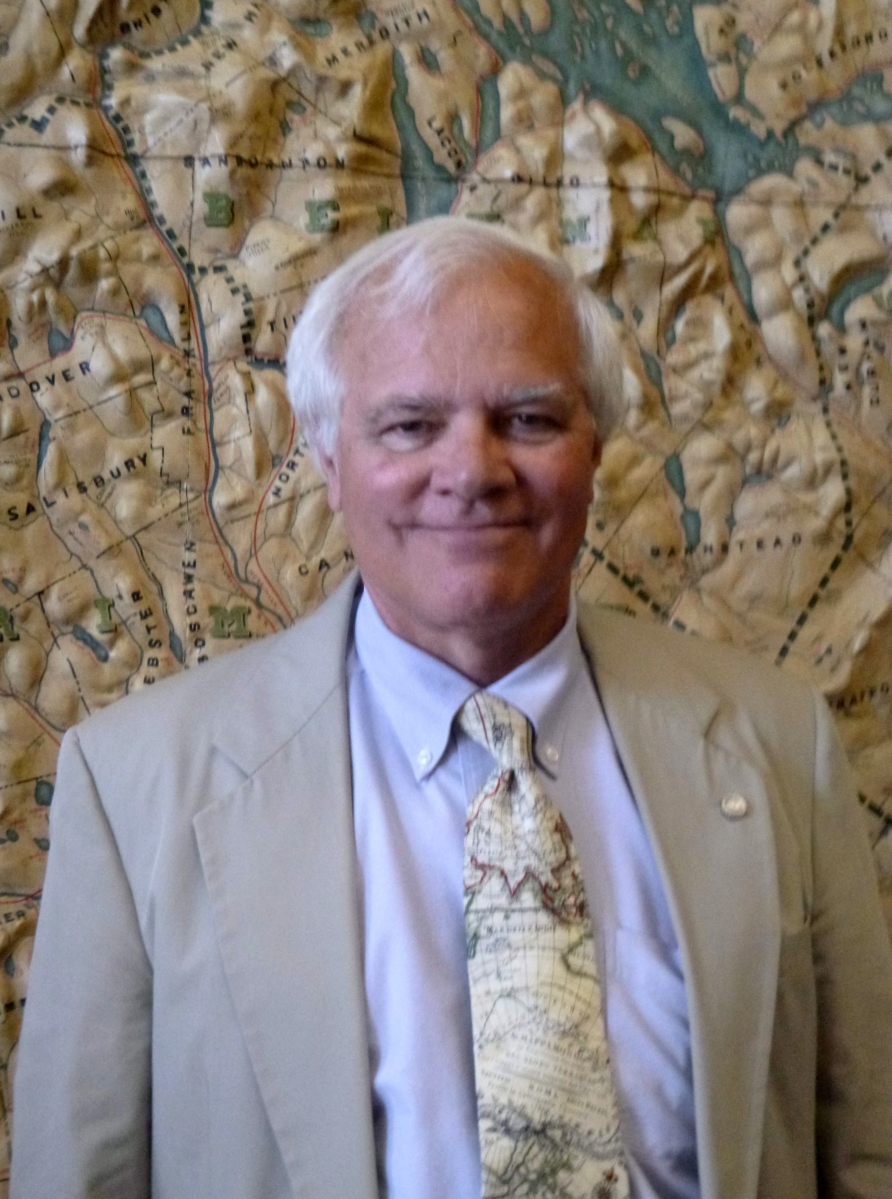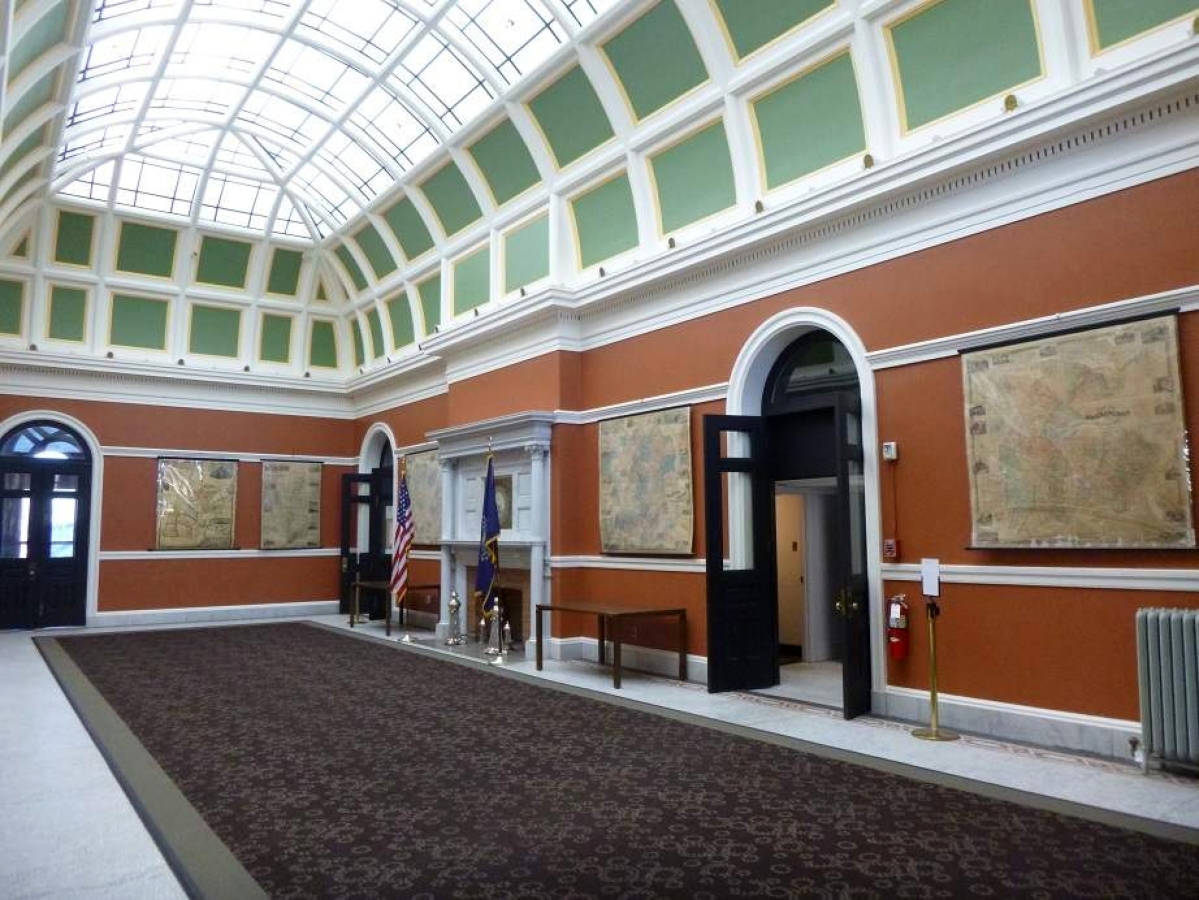
Founded in 1717, the New Hampshire State Library in Concord is the oldest state library in the United States. Michael York has been the state librarian since 1999. Prior to assuming that post, he was director of the New Hampshire Political Library, dedicated to preserving and archiving materials relating to New Hampshire’s first-in-the-nation presidential primaries, and prior to that he was director of libraries at the University of New Hampshire in Durham. He graduated from Louisiana State University’s School of Library and Information Science. When founded, the New Hampshire State Library was a repository for statutory commands sent by the British crown and a repository for laws and records of the Province of New Hampshire.
How did the library come to be?
In 1717, the state’s General Assembly passed a resolution stating that “law books be distributed” among the several towns “except two books which shall be for the use of the Governor & Council….” With those two books the library was begun. We believe it was just a closet where they put these things so they could be properly secured. As legislation was added or amended over the years, the collections of the library and its mission grew. In 1866, legislation formally established the state library as a separate department and created the position of state librarian. A few years later, permission was granted to aid in the formation of free local libraries by giving them each $100 worth of books. We are still the depository for publications of all State of New Hampshire departments, and also receive many publications produced by the federal Government Printing Office.
What does a state librarian do?
The state librarian is responsible for ensuring that all citizens of the state have access to library services, especially those that have traditionally been underserved, such as blind and physically handicapped residents. To meet those particular needs, we established a statewide “Talking Books” program. We assist all 234 town libraries in the state through the development and coordination of a statewide library/information system. We meet the informational needs of New Hampshire state, county and municipal governments, and serve as an information resource center about New Hampshire. We are the repository for everything about New Hampshire – political, historical and cultural. We do not purchase all of the latest works of fiction, but we do purchase books about New Hampshire, and those written by New Hampshire authors. So we have Dan Brown’s books – such as The Da Vinci Code – but that’s because he lives in the state. We also maintain and protect our treasures, such as the 1826 Carrigain Map, the first official map of the state.

The library has a large collection of New Hampshire state, county and town maps, several of which are on permanent display in the map gallery in the 1895 building.
The library’s strengths?
In addition to maintaining the collections mentioned above, we have particular collections that are available to all. We have a strong collection on genealogy, including about 2,400 titles of published family histories for New Hampshire and New England. Plus, there’s a unique name index to early town records on microfilm. Our collection of town records, generally covering the years 1640 to 1830/40, can provide birth and marriage dates, as well as listings of such items as tax inventories. Plus, we have town and county histories, town reports, federal census records for New Hampshire for the years 1790-1930, city directories, New Hampshire newspapers on microfilm and much more. We subscribe to several genealogical data bases and assist researchers in using these resources. All of this material is in the main reading room, easily accessible to all. We also have a collection of New Hampshire maps, including the Sanborn Fire Insurance Maps, which are very useful to researchers. Hanging in our map gallery are copies of each of the large mid-Nineteenth Century county and state maps
How do you see the role of libraries in the Twenty-First Century?
Libraries remain the best source of information for all citizens and are the “anchor institutions” in every community. Our responsibility is to see that we meet that standard. We coordinate interlibrary loans to make it simple for anyone to have access to any book in any library in the state. Our New Hampshire Union Public Access catalog reflects the holdings of the 375 public, school, academic and special libraries that make up the New Hampshire Automated Information System. Our mission statement clearly includes the mandate to “meet the informational needs of New Hampshire state, county and municipal governments and its libraries.” As far as possible we keep up to date and use developing technologies. And for us, in particular, we have to care for the granite and marble building that we moved into in 1895, and the collections with which we’ve been entrusted.
-Rick Russack




